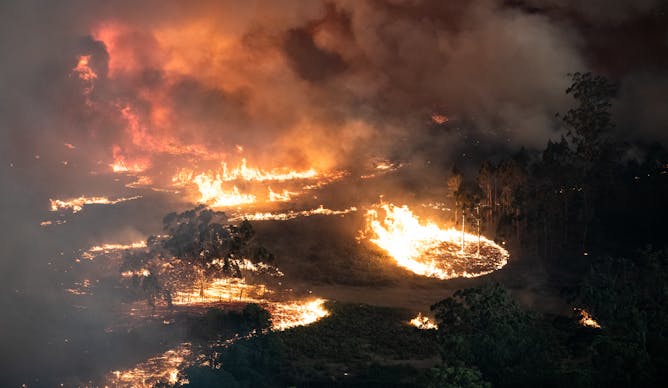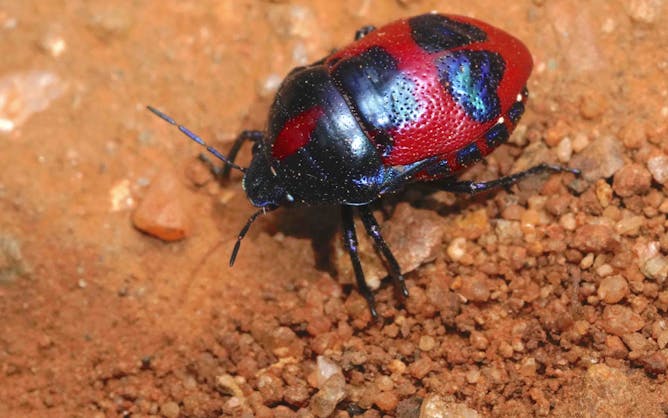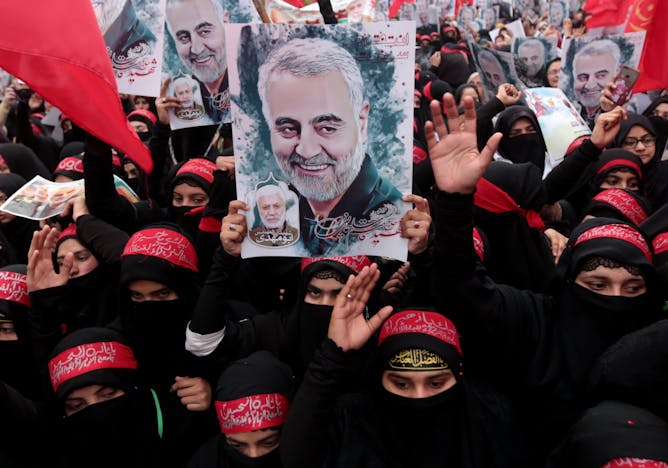|
|
|
Editor's note
|
|
Australia’s history is marred by bushfires of such ferocity they are burnt into our psyche. From the Victorian fires of 1851 to Ash Wednesday in 1983 and of course, 2009’s Black Saturday, our nation is among the most fire-ravaged on Earth.
And then, of course, came the devastating summer of 2019-20, a fire season not yet finished. Some commentators have downplayed the significance of these fires – and by extension, the impact of climate change – by claiming they are no different to those past.
But as Joelle Gergis and Geoff Cary write today, this fire season is different.
Rather than affecting just one state or region, the current bushfires have devastated vast swathes of the country, often simultaneously. Unlike major fires of the past, they occurred in the absence of a warming El Niño. And of course, they were preceded by the hottest and driest conditions in Australian history, due in large part to climate change.
And, while we’ve all seen the shocking images of burnt koalas and kangaroos, Mike Lee writes that damage to species of large animals is just the tip of the iceberg. He says at least 700 insect species will also be driven toward extinction, alongside large numbers of worms, spiders, snails and other invertebrates which act as “little rivets holding ecosystems together”.
|
Nicole Hasham
Section Editor: Energy + Environment
|

|
|
Top story
|

Australia is a bushfire-prone nation. But several factors make this fire season worse than those past.
Victorian Government
Joelle Gergis, Australian National University; Geoff Cary, Australian National University
The latest bushfires cannot be compared to Ash Wednesday or Black Saturday. Our nation's fire history is being rewritten.
|

Invertebrates out greatly outnumber mammals everywhere, including in bushfire zones.
Michael Lee
Mike Lee, Flinders University
Once you include insects, snails, worms and other small creatures, it's clear the fires could cause one of the biggest extinction events of the modern era.
|

The assassination of Iranian General Qassem Soleimani has sparked protests in a number of countries – both Muslim and non-Muslim.
RAHAT DAR/EPA
Ben Rich, Curtin University
In recent decades, most nations have agreed on certain norms to ensure peace, including an end to assassinations. Trump's move to kill an Iranian general upends this carefully balanced system.
|

New research shows people will be more likely to die from accidents and injuries as the climate gets warmer.
From shutterstock.com
Liz Hanna, Australian National University
A new US study has found warmer temperatures will lead to more deaths from injury, for example in transport accidents, drownings, assaults and suicides. But what does this mean for Australia?
|
Business + Economy
|
-
Raymond William Loveridge, University of Technology Sydney
If the aim is to minimise the number of buildings damaged or destroyed in extreme fire events, Australia's building regulations are clearly inadequate. But that's not their aim.
|
|
Arts + Culture
|
-
Aileen Marwung Walsh, Australian National University
In his autobiography, Tell Me Why, musician Archie Roach tells the stories of loss, pain and survival behind his songs.
|
|
Health + Medicine
|
-
Karleen Gribble, Western Sydney University; Nina J Berry, University of Sydney
Babies and toddlers might not be able to communicate well or at all with words, but they show their distress during disasters through behaviour. Here's how parents can help them cope.
|
|
Environment + Energy
|
-
Paul McInerney, CSIRO; gavin.rees@csiro.au, CSIRO; Klaus Joehnk, CSIRO
Fire debris flowing into Murray-Darling Basin will exacerbate the risk of fish and other aquatic life dying en masse in a repeat of the shocking fish kills of last summer.
|
|
Politics + Society
|
-
Adrian Beaumont, University of Melbourne
Morrison suffered a drop in his job performance rating, with 37% saying they were satisfied, down eight points from early December, and 59% saying they were dissatisfied, up 11 points.
|
|
| |
Featured jobs
|
|
|
| |
| |
| |

|
| |
| |
| |
Featured events
|

|
RMIT University City Campus, Melbourne, Australian Capital Territory, 3000, Australia — RMIT University
|

|
The Great Hall, The Quadrangle, University of Sydney Camperdown, NSW 2006, Sydney, Australian Capital Territory, 2006, Australia — University of Sydney
|
|
|
|
| |
| |
| |
| |
| |
|
|
|
|
|
|
|